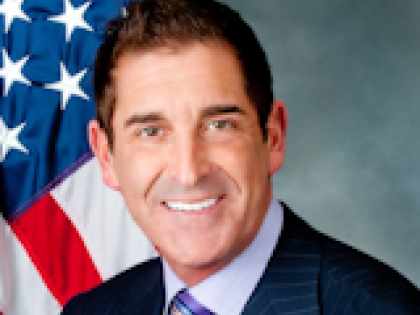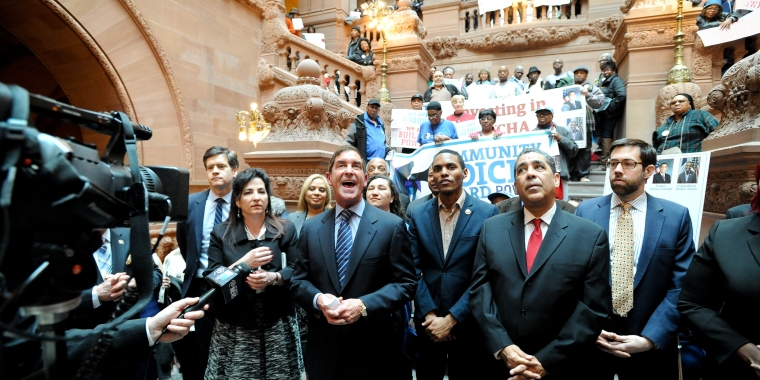
INDEPENDENT DEMOCRATIC CONFERENCE RELAUNCHES COMPREHENSIVE CAMPAIGN FINANCE AND ETHICS REFORM PACKAGE
December 7, 2015
New York, NY — The Independent Democratic Conference (IDC) relaunched a comprehensive campaign finance and ethics package today, calling for the legislature to pass their groundbreaking 2013 and 2015 proposals for reform.
Over the past three years, the IDC has led the way in proposing campaign finance and ethics reform. In 2013, they introduced the “Integrity in Elections Act,” which created a new system for campaign contributions. Earlier this year, the IDC proposed a ban on outside income, with IDC Leader Jeff Klein leading by example and forgoing outside work.
“I led the way by example by divesting from my law firm and calling for a ban on outside income. I once again call on my colleagues in the legislature to pass the Independent Democratic Conference’s comprehensive campaign finance and ethics reform package. As one of my colleagues in the legislature noted, this is starting to feel like ‘Groundhog Day,’ as the IDC re-introduces legislation year after year. Now, more than ever, it is imperative that we work to rebuild the public’s trust in its government. We need significant campaign finance reform, and a ban outside income for legislators. Every day of inaction brings us one step further from the strong, transparent government that New York deserves - we must immediately act to pass these measures,” said IDC Leader Jeff Klein (D-Bronx, Westchester).
Modeled after the federal campaign system, the “Integrity in Elections Act” focuses on reforming the campaign contribution system by capping individual donations, banning corporate contributions, including LLC donations, creating a New York State Business Contract Database, opening cross-party candidate endorsements, and banning fund transfers between political party committees and candidate committees.
“In 2013, I worked with my fellow IDC members to propose extensive legislation establishing limits on individual campaign donations and a ban on corporate contributions, among other pieces. Earlier this year, I was proud to stand with Senator Klein and support the call for a ban on outside income, which would bring with it a number of other income reforms. Action on these issues is long-overdue, and it is high time that the legislature accept what the IDC already knows - we need these reforms immediately, so that we can start rebuilding public trust immediately,” said Senator Diane Savino (D-Staten Island, Brooklyn).
"We need to change the status quo of how Albany functions. New Yorkers deserve representatives who tirelessly advocate for their needs, not the needs of special interest groups and those who use money to influence the political process for their own benefit. Joining my fellow members of the Independent Democratic Conference, I urge my colleagues in the legislature enact a ban on outside income and other commonsense reforms this upcoming session. Reforming the New York State Legislature will not be easy; however, it must be done to win back the public’s trust," said Senator David Carlucci (D-Rockland/Westchester)
“As we head into the next legislative session, the public needs to know that it can trust its elected officials, now more than ever. That is why I, along with my fellow IDC members, have worked to rebuild the public trust by proposing campaign finance and ethics reforms. As we started in 2013, with the “Integrity in Elections Act”, and have continued since with our proposed ban on outside income, I look forward to continuing to work with my conference members and the rest of my colleagues in the legislature, to finally pass what our state has needed for so long,” said Senator David Valesky (D-Oneida).
In addition to the “Integrity in Elections Act”, earlier this year, the IDC pioneered a proposal to ban outside income, in addition to a number of other income and financial interest reforms. The bill would prohibit all outside earned income, create a blind trust for legislators’ assets in order to sidestep any conflict of interest based on financial interests, and close the financial disclosure loophole by requiring legislators to file an annual statement for any full or partial calendar year that a legislator served, allowing the public to review financial information for a legislator’s final year in office.
Share this Article or Press Release
Newsroom
Go to Newsroom
